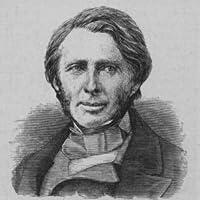
John Ruskin
关于作者
John Ruskin was a prominent English art critic, social thinker, and philanthropist, born in London in 1819. He is best remembered for his influential writings on art and architecture, particularly his advocacy for the appreciation of nature and the importance of craftsmanship. Ruskin's early works, such as "The Stones of Venice" and "Modern Painters," challenged the prevailing norms of art criticism and laid the groundwork for the Arts and Crafts Movement. His passion for beauty and truth in art was matched by his desire for social reform, as he believed that art should be accessible to all and serve a moral purpose.
Throughout his life, Ruskin's ideas evolved, and he became increasingly concerned with the effects of industrialization on society and the environment. He argued for a return to simpler, more sustainable ways of living and working, which resonated with many during his time. His influence extended beyond the art world, impacting literature, education, and social reform movements. Ruskin's legacy continues to be felt today, as his thoughts on the relationship between art, nature, and society remain relevant in contemporary discussions about culture and sustainability.